Sometimes in parenting, we can make things better for our kids. They fall down, we pick them up. They spill their water bottle, and we refill it. We can kiss their hurts, comfort them when they cry, help them put something back together with glue, scotch tape, or band aids.
But what if you're faced with a situation as a parent that you can't fix? What if you can't make something better for your child? There are some situations that just “are”. Maybe you have to move, or grandma dies, or your child's special toy gets lost and can't be replaced.
One of our kids has been upset with me about something for two years. During that time, she wanted me to undo what I did. We've had countless conversations about it where she's told me her feelings and how much of a toll it's taken on her emotionally. I've listened to her, empathized with her, and understood her perspective. I haven't been defensive. I explained to her my reasons for doing what I did and how there is no easy solution to this situation.
Today, our daughter came to me and said that she has accepted the situation, not begrudging acceptance, but a genuine acceptance with her whole heart. I could hardly believe my ears. She thanked me for how strong I'd been the entire time, for listening to her, but not fixing the situation. (What?!) She shared that she understands my perspective now and agrees with my choice, even though it impacted her so much (Wow!).
This was a victory for both of us. She did some big emotional work to get to a place of acceptance. For my part, I've worked to understand her, without defensiveness or judgment, and hear what was going on for her.
How to Navigate Unfixable Situations with Your Child
If you find yourself in a similar situation where you can't make something better for your child, here are three essential approaches that can help both of you work through it:
1. Listen Without Judgment or Defensiveness
When your child expresses their hurt or frustration about something you can't change, your first instinct might be to defend your decision or minimize their feelings. Instead, try these strategies:
Create space for their emotions. Let your child express their feelings fully without interrupting or correcting them. Even if what they're saying feels unfair or hurtful, remember that they need to process these emotions.
Resist the urge to justify immediately. While you may have valid reasons for your decisions, leading with explanations can shut down communication. Focus first on understanding what they're experiencing.
Use reflective listening. Repeat back what you're hearing: “It sounds like you're really angry that we had to move and leave your friends behind” or “You're telling me this decision has made you feel like I don't care about what matters to you.”
Stay curious, not defensive. Approach their feelings with genuine curiosity about their inner world rather than defending your position as the parent.
2. Empathize with Your Child's Feelings
Empathy doesn't mean agreeing with everything your child says or feeling guilty about necessary decisions. It means truly understanding and validating their emotional experience:
Acknowledge the weight of their feelings. Say things like “This has been really hard for you” or “I can see how much this matters to you” rather than rushing to make them feel better.
Validate their perspective. You can understand why they feel hurt without agreeing that you made the wrong choice. “I can absolutely understand why you would feel angry about this” is validating without being apologetic for necessary decisions.
Share your own emotions appropriately. It's okay to say “This has been hard for me too, seeing how much you're struggling with this” while keeping the focus on their experience.
Avoid minimizing language. Resist phrases like “You'll get over it” or “It's not that big of a deal.” What feels small to you might feel enormous to them.
3. Help Your Child Find Places Where They Can Have Agency
While you can't change the unchangeable situation, you can help your child identify areas where they do have some control and choice:
Explore their options within the constraints. If you had to move, perhaps they can choose how to decorate their new room or decide when to video call old friends. If a beloved pet died, maybe they can choose how to memorialize them.
Involve them in related decisions. Look for ways to give them input on aspects of the situation that are within their influence, even if the main issue can't be changed.
Focus on their responses and coping strategies. Help them recognize that while they can't control what happened, they can control how they respond to it. This might include choosing how to talk about their feelings, what activities help them feel better, or how they want to move forward.
Encourage problem-solving for the future. Ask questions like “What would help you feel more prepared if something like this happens again?” or “What do you need from me as we work through this together?”
Celebrate their growth and resilience. Acknowledge when you see them making progress in accepting difficult situations or finding their own ways to cope.
Remember, the goal isn't to make your child happy about the unchangeable situation, but to help them develop the emotional skills to navigate life's inevitable disappointments and challenges. Sometimes the greatest gift we can give our children is showing them that difficult feelings can be survived and that they have more strength and agency than they realize.
Do you have a situation like this in your life? A situation that is not easily changed and your child feels upset about it, maybe even blames you for it?
How have you responded to it? I'd love to hear more about it in the comments.

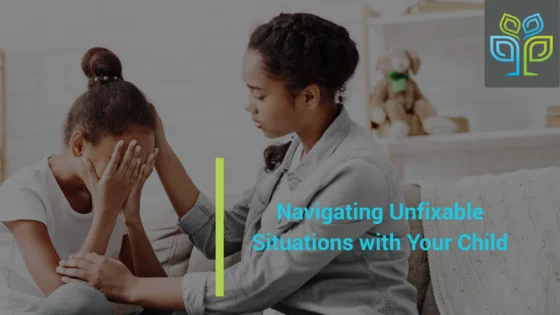

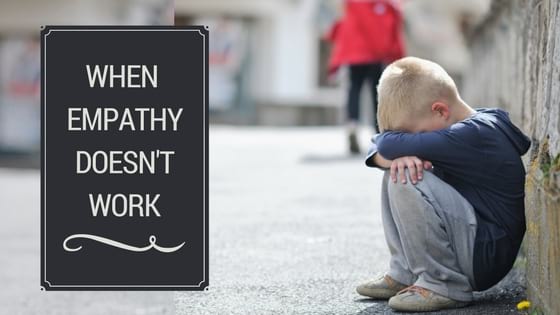

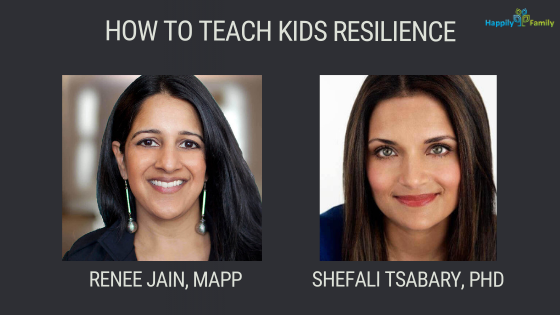

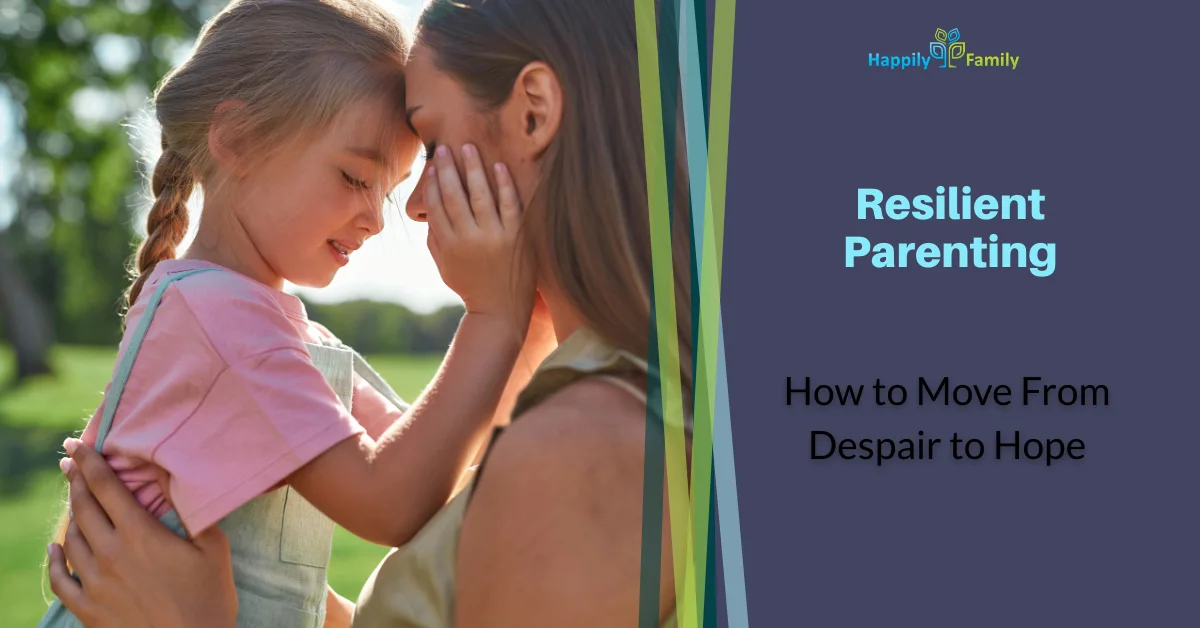
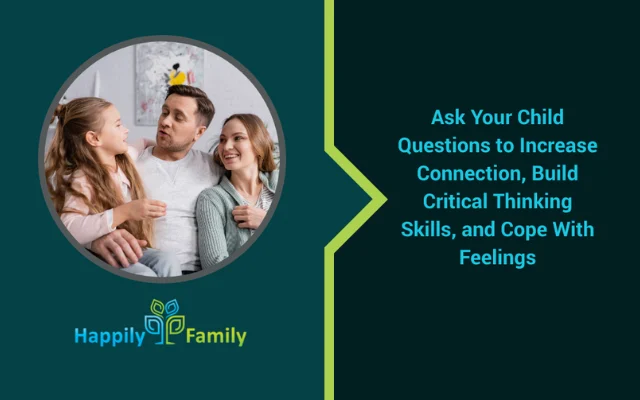
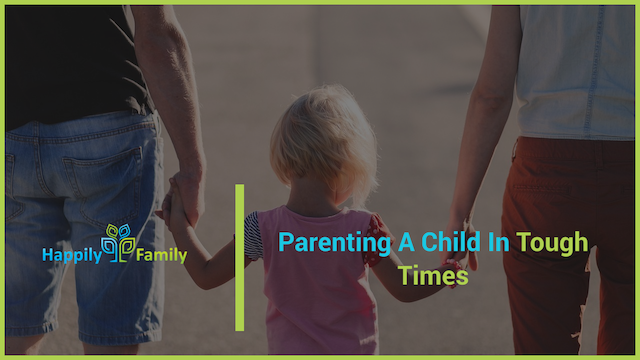
Thank you for these suggestions! However, my 16-year old becomes incensed if I seem to understand how he feels (“I can see how painful this is for you” and not take the steps he wants me to, to help him feel better (Basically, reject part of the family and stop going to family events altogether). What took place did hurt him, but it’s not the sort of thing that justifies walking away from the family (Who I love and who love us both).
Oh, that is hard, Elisabeth. This might be where the “supporting him finding agency” becomes key. What would it be like to say “Well, what needs do you have? How can you meet them giving this situation that we cannot change? How can I support you with that?”
Meeting those needs will be important for whatever the path looks like moving forward and there might be more options than either of you realizes right now.
Thank you for sharing.
It sounds quite sensible and worth trying. However, if this technique had been applied to me as a child, I would become furious if I would be acknowledged for making progress in accepting difficult situations or finding my own ways to cope. I would interpret is as manipulative. I suspect it would make things worse. However I am talking about myself as a child, not about all children in general, so I’m not dismissing this technique as such.
That makes sense, Nat. You’ve brought up an important piece here. I would say that the technique of acknowledgement here is more about supporting your child’s self-awareness. Our brains have a negativity bias, and sometimes we struggle to recognize when things are going well (or have gone well in the past). So helping your child to notice those moments where they are coping well can both be a moment of connection and celebration (if they are excited about it), and simply a moment where your child notices that something is working for them.
And, it’s also important to know your child! You are the expert in your child, so if a technique isn’t right for them, it’s more than okay to skip it.
Thanks for sharing!
This really resonates with me. As a single parent with 24/7 care of 2 high needs teenagers with different needs, I’m always having to juggle complex needs and making tough choices. One thing that keeps coming up is my 18 year old being unable to have friends/ girlfriend stay overnight. My 16 year old is highly anxious and cannot cope with visitors overnight unless he knows them really well. He’s only more recently managed accepting visitors in the day as long as they don’t go in his bedroom. I’ve had to stay firm on this as the last time we attempted it , it went badly wrong and I had to pay for uber to get the girlfriend home as he went into meltdown/ shutdown and very distressed.
My 18 year old also struggles to accept things (both autistic, youngest definitely pda, eldest prob pda and also ADHD). Both get fixated on the ‘right’ outcome and think I’m choosing sides. I try to listen to both points of view but ultimately people need to feel safe in their house and that too trumps other ‘wants’’. It’s so hard though, I do need to validate eldests feelings more though for sure,
This is a tough place to be in for sure, Zoe. Thank you so much for sharing. I know others reading will feel less alone too. You definitely are not the only one. It sounds like you are doing the work to not only listen to your kids, but support them in having their spaces and needs respected. As you explore validating your eldest’s feelings more, don’t forget to validate your own too. You all absolutely deserve compassion and empathy. 💖